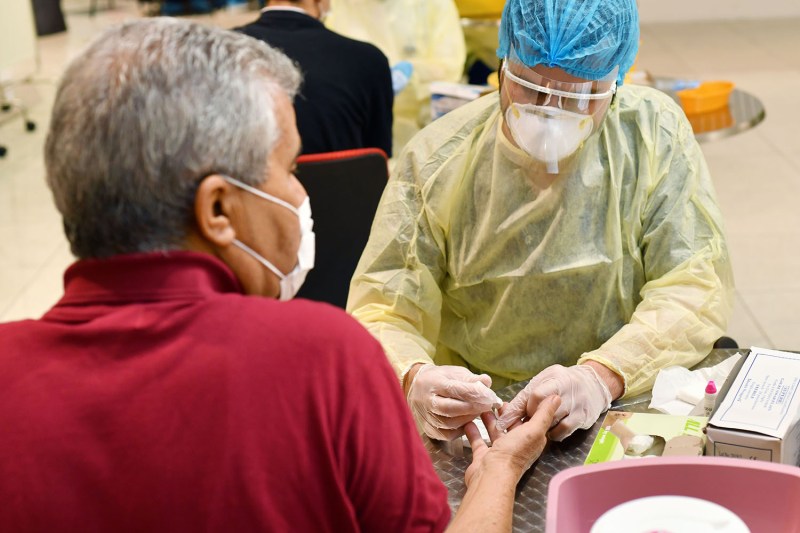
The coronavirus pandemic has changed the way we’re all living right now. It seems likely to affect the way we continue to live even after things return to “normal.” Air travel is not going to be the same, especially for international passengers. Recent announcements by several Middle Eastern air carriers hint at a high-tech future where passengers could be screened for both security and medical conditions.
In a sign of what air travel may look like in the not-too-distant future, Emirates announced last week that it was testing some passengers for COVID-19. The airline only carried out testing on a single flight from Dubai International Airport to Tunisia. Before boarding, passengers were screened using a rapid blood testing method that delivers results in about ten minutes. The airline wouldn’t confirm whether it denied boarding for passengers who tested positive.

Although the testing was limited to one flight, the airline confirmed that it’s looking to expand the procedure to other routes. In a statement, Emirates’ Chief Operating Officer, Adel Al Redha, said, “We are working on plans to scale up testing capabilities … This will enable us to conduct on-site tests and provide immediate confirmation for Emirates passengers traveling to countries that require COVID-19 test certificates.” It seems likely that some — if not many — countries could start requiring certificates of testing for inbound travelers.
Emirates is the first airline to conduct COVID-19-specific testing, although it seems certain that it won’t be the last. UAE-based Etihad Airways announced plans to debut self-service testing kiosks at the airport in Abu Dhabi by the end of this month. They will examine passengers’ heart rate, temperature, and respiratory diagnostics to identify severe medical conditions. The airline hasn’t specified, however, whether it’s testing for COVID-19.
Airlines around the world are already taking substantial precautions in the fight against COVID-19. Many are requiring employees to don face masks, minimize interaction with passengers, and sanitize interior airplane surfaces. In some cases, airlines are limiting (or eliminating) in-flight services, removing magazines from seat back pockets, and curbing carry-on bag allowances. This move from Emirates appears to be among the first significant changes, however, to directly affect passengers during the boarding process.



